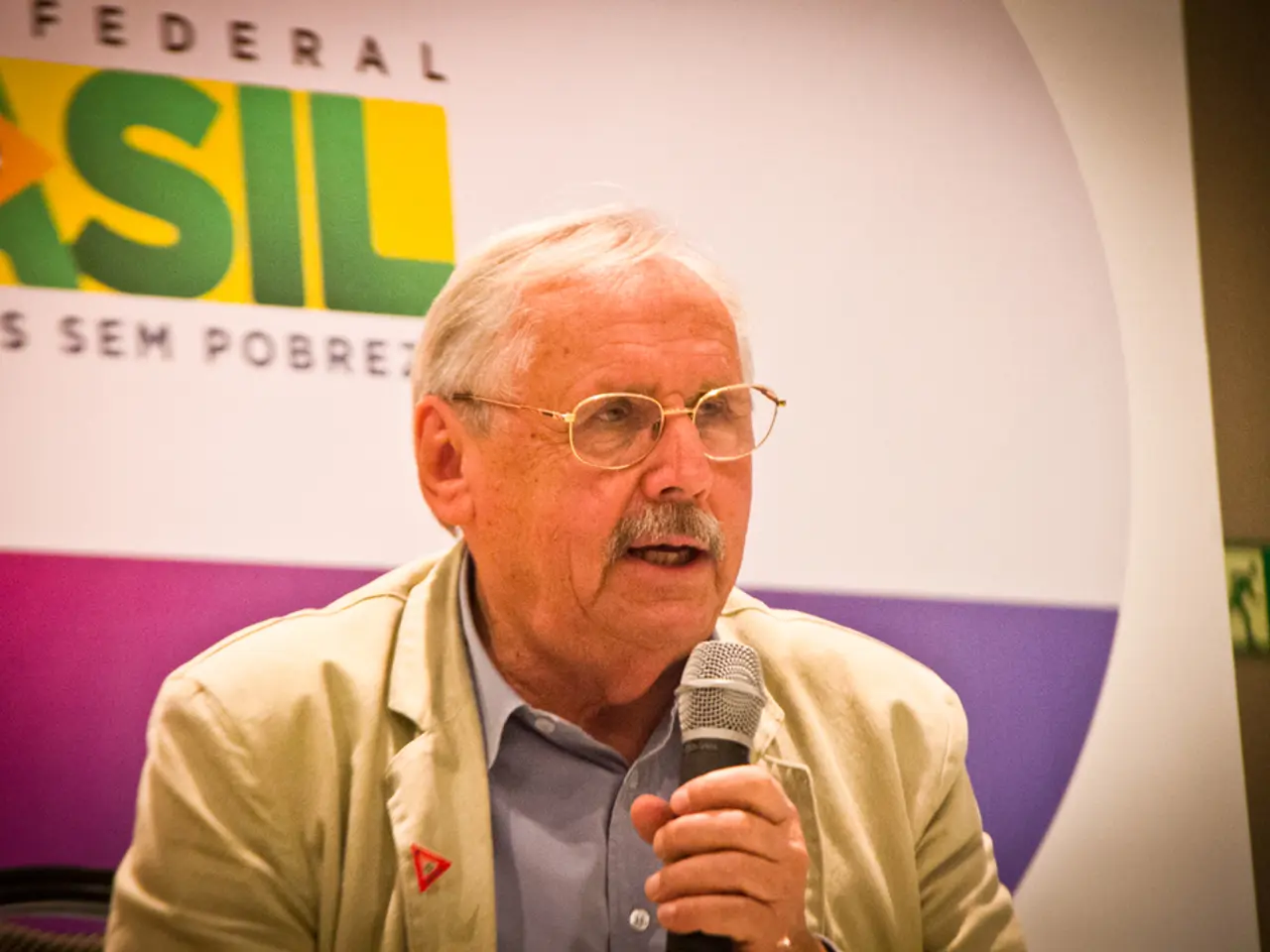Trump instigates controversy with decree urging demonstrations in Washington
In a move that has sparked controversy and debate, President Donald Trump has taken control of the Washington D.C. police force under a declared crime emergency. This decision, made on August 11, 2025, has raised significant questions about federal authority versus local governance in the U.S. capital.
The president's decree is based on the "Home Rule Act," claiming that the local government has lost control over security. However, recent crime statistics show a decrease in reported crimes, with a 25% drop in violent crimes and a 7% decrease in total crimes compared to the same period last year.
The National Guard, part of the U.S. Army, has been active in Washington D.C. before, but this is the first time they have been placed under federal control due to a loss of local control over security. Currently, 800 National Guard soldiers have been deployed, with Trump planning to mobilize more if necessary.
This decision has intensified political conflict between the executive branch and Congress, especially along party lines. The president's resolution to extend his control over the D.C. police indefinitely faces strong opposition from Senate Democrats who have pledged to block it. The president has considered declaring a national emergency to bypass Congress, a move likely to trigger legal challenges.
Legally, this action is based on section 740 of the District of Columbia Home Rule Act, which allows the president to assume control over D.C. police under specified emergency conditions. However, Congressional approval is required to extend such federal control beyond 30 days. A resolution was introduced in the U.S. House in August 2025 aiming to extend President Trump’s control over the D.C. police indefinitely, subject to his determination that it is necessary for safety.
The potential consequences include legal battles over the president’s authority to control local law enforcement without Congressional approval, criticism that such federalization and deployment of National Guard troops represent political theatrics that could undermine democracy and public safety, and the intensifying political conflict between the executive branch and Congress.
Protests against Trump's decision to place the police under federal control and deploy soldiers have been organised through social media. Actions include hanging posters, banging pots, and temporarily blocking traffic. The U.S. President can initially place the local Washington police under federal control for up to 48 hours without informing Congress. After this period, Congressional approval is required to extend the control.
It is unclear how the cooperation between local and federal authorities will work exactly, as there seemed to be little coordination with the Democratic Mayor Muriel Bowser before Trump's announcement. This lack of coordination has raised concerns about the impact of the president's decision on the city's governance and the well-being of its residents.
In 2024, the year with the fewest violent crimes in 30 years, according to the U.S. Attorney's Office for the District of Columbia, this decision has been met with confusion and criticism. This controversial move by President Trump has sparked a heated debate about the balance of power between federal and local authorities, and the implications for the future of Washington D.C.'s governance.
Read also:
- Court petitions to reverse established decision on same-sex marriage legalization
- Commemoration of 200 Days of American Resurgence Unveiled
- Minister Bärbel Bas expresses doubts about her tenure as a minister following a recent interview during the summer.
- Politicians from both Republican and Democratic parties are urging President Trump to maintain the security agreement with Australia and the United Kingdom.







